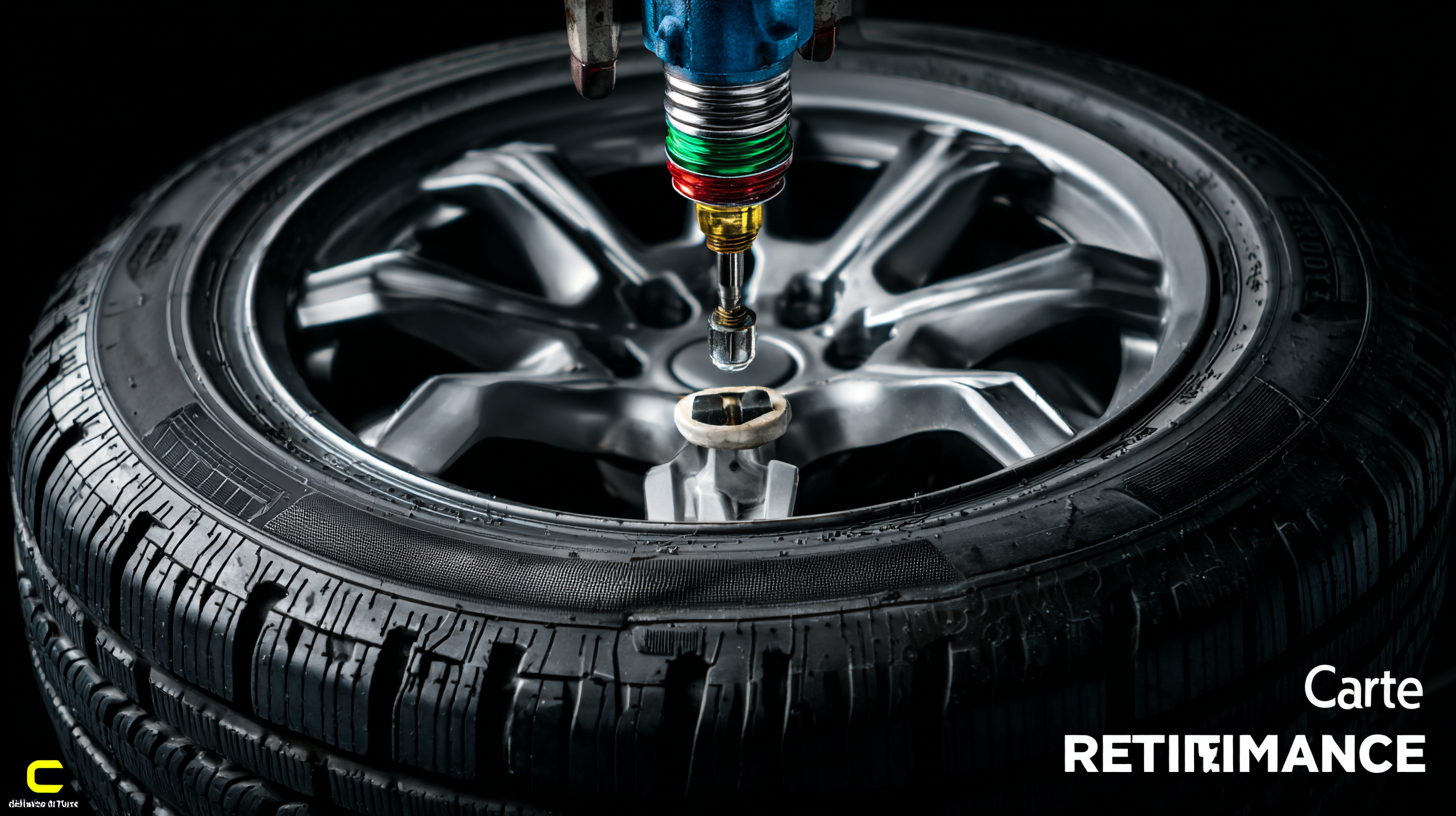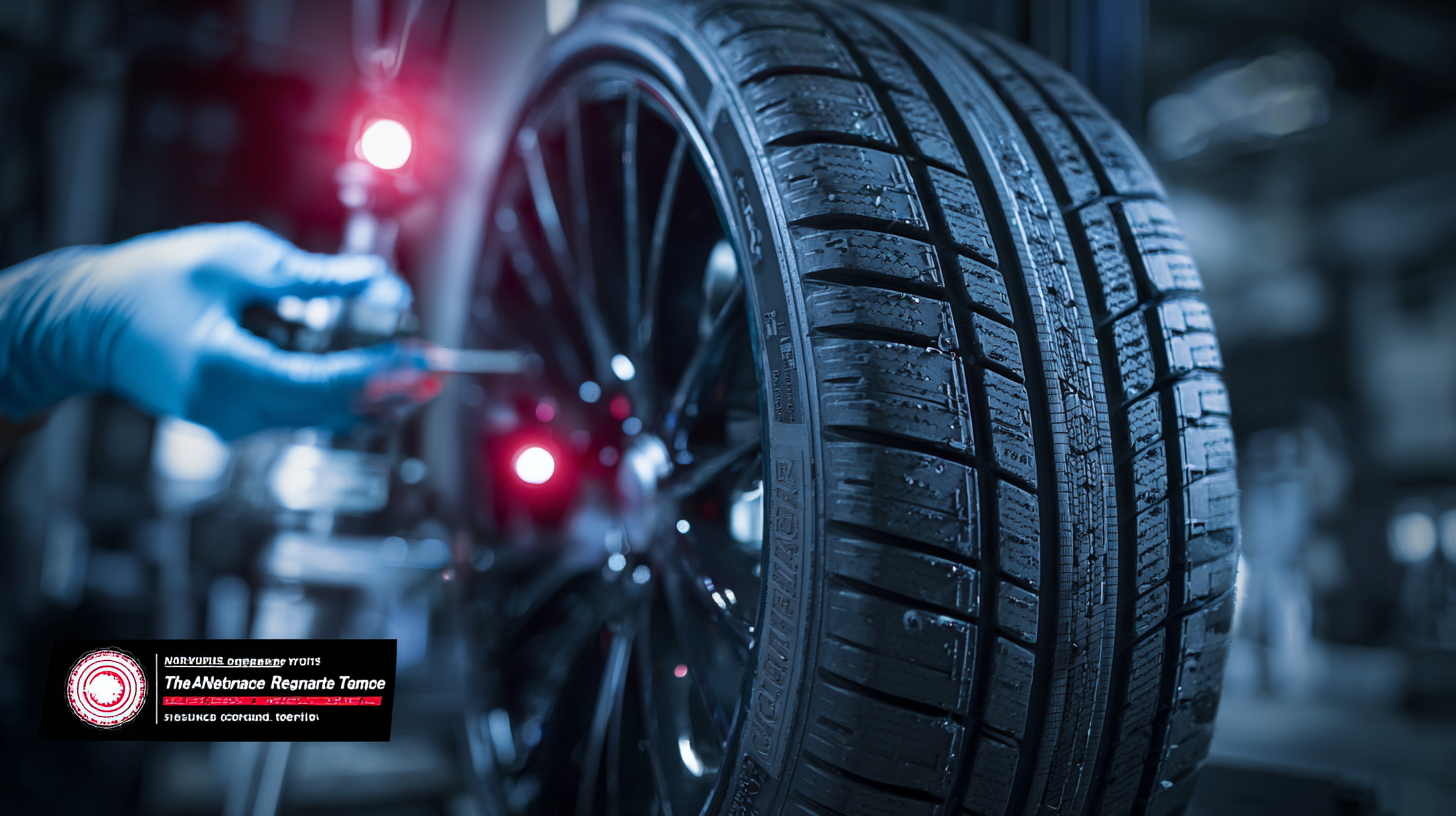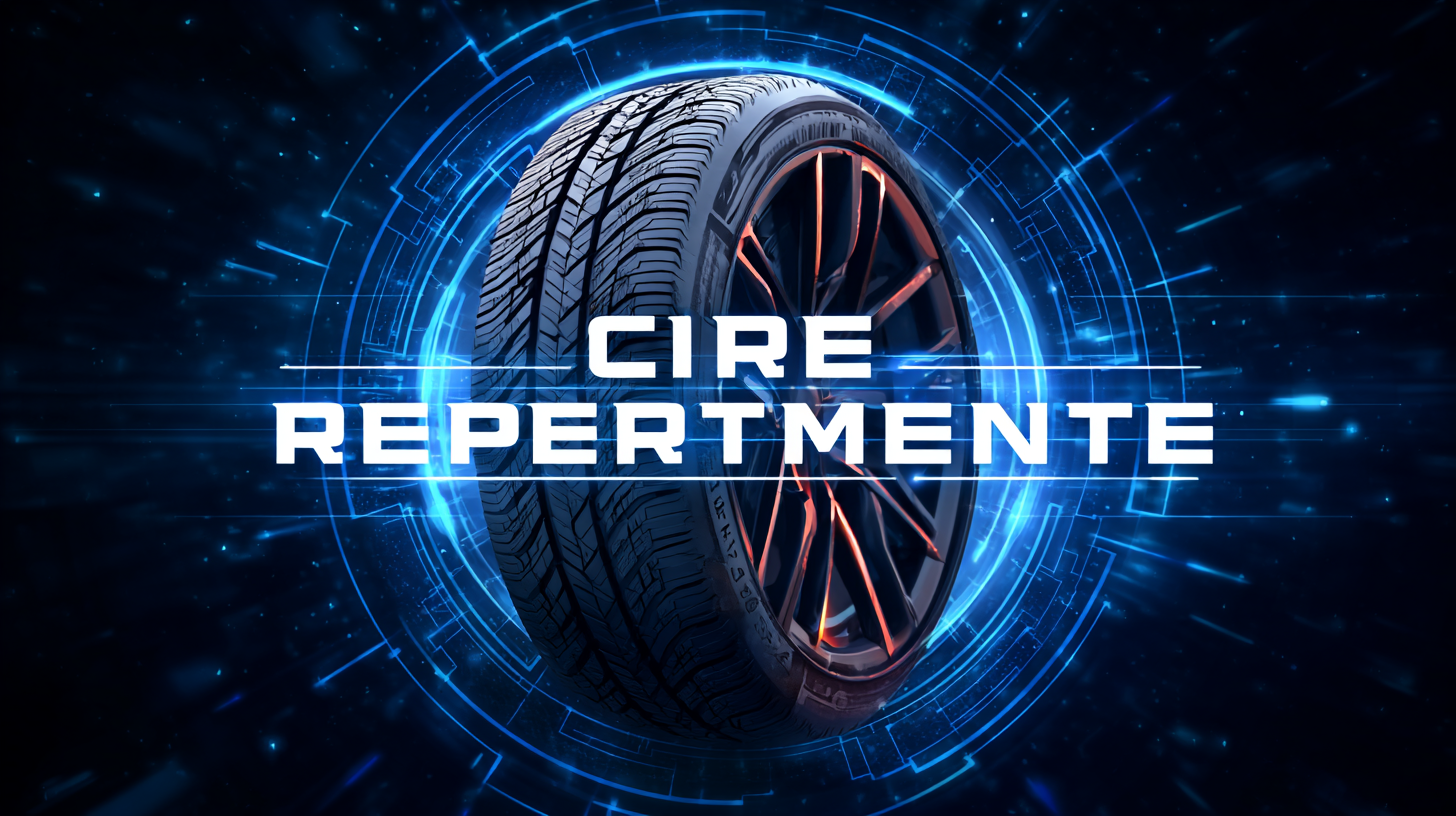 As the automotive industry continues to evolve, the importance of choosing the right
Car Tire Replacement technology has become a pressing concern for vehicle owners in 2025.
According to a recent study by the Tire Industry Association, the global tire market is projected to reach $250 billion by 2025, driven by advancements in tire technology and an increasing focus on sustainability.
This shift highlights the need for consumers to stay informed about the latest trends in tire design, performance, and safety features.
Furthermore, a report from Market Research Future indicates that the demand for smart tire technologies is expected to grow significantly, enhancing vehicle performance and safety.
In this blog, we will explore the top trends in car tire replacement and provide guidance on how to select the best technology for your specific vehicle needs, ensuring a safer and more efficient driving experience.
As the automotive industry continues to evolve, the importance of choosing the right
Car Tire Replacement technology has become a pressing concern for vehicle owners in 2025.
According to a recent study by the Tire Industry Association, the global tire market is projected to reach $250 billion by 2025, driven by advancements in tire technology and an increasing focus on sustainability.
This shift highlights the need for consumers to stay informed about the latest trends in tire design, performance, and safety features.
Furthermore, a report from Market Research Future indicates that the demand for smart tire technologies is expected to grow significantly, enhancing vehicle performance and safety.
In this blog, we will explore the top trends in car tire replacement and provide guidance on how to select the best technology for your specific vehicle needs, ensuring a safer and more efficient driving experience.
The future of tire materials in 2025 promises groundbreaking innovations that blend performance with sustainability. As the automotive industry increasingly embraces eco-friendly practices, manufacturers are investing in the development of materials that not only enhance durability and safety but also reduce environmental impact. Bio-based compounds, such as natural rubber and renewable polymers, are increasingly being incorporated into tire designs, catering to the growing demand for sustainable products.

Additionally, advancements in tire technology are leading to the creation of self-healing materials that can repair minor punctures autonomously. This development not only extends the lifespan of tires but also minimizes waste, aligning with global sustainability goals. Smart tires equipped with sensors to monitor performance and pressure in real-time are also on the rise, enabling drivers to optimize their vehicle's efficiency while promoting a safer driving experience. As we move toward 2025, staying informed about these trends will be crucial for vehicle owners looking to make environmentally responsible choices without compromising on performance.
When selecting new tires for your vehicle, understanding tire performance is paramount.
There are several key metrics to consider, including tread wear, traction, and temperature resistance.
Tread wear ratings give insight into how long the tires can last, while traction ratings indicate the tire's grip on dry and wet surfaces.
Finally, temperature resistance can affect performance under varying weather conditions.
By evaluating these factors, you can make more informed decisions that enhance both safety and efficiency.
Tip: Always check the manufacturer's recommendations for tire specifications.
This includes size, load index, and speed rating, which are crucial for ensuring that the tires fit properly and perform as expected.
As technology evolves, newer features such as run-flat tires and self-sealing designs are becoming increasingly popular.
These innovations can provide additional safety and convenience, allowing drivers to maintain mobility in the event of a puncture.
It's essential to weigh these advanced options against your driving needs and regional climate.
Tip: Consider your typical driving conditions when choosing tire technology.
If you often drive in wet or snowy environments, tires with enhanced grip and water dispersion features may be more beneficial.
The emergence of smart tires equipped with IoT technology and sensors is transforming how we approach tire safety and maintenance. These innovations enable real-time monitoring of tire conditions, including pressure, temperature, and tread wear. By delivering this critical data directly to the vehicle's system or a mobile app, drivers can proactively address potential issues before they lead to tire failure, ensuring a safer driving experience.
When choosing smart tires, consider these tips: first, evaluate the specific features the sensors provide. Some systems offer advanced diagnostics, while others may simply alert you to low pressure. Second, look for compatibility with your vehicle's make and model to ensure seamless integration. Lastly, assess the durability and maintenance requirements of the smart tire technology to ensure it can withstand different driving conditions.
As technology evolves, selecting the right tires for your vehicle will require a focus on innovation and practicality. Staying informed about the latest tire trends and understanding how smart technologies can enhance safety will empower you to make better choices—protecting both yourself and your passengers on the road.
This chart illustrates the growing adoption of smart tire technologies, showcasing various features like IoT integration, pressure sensors, and tread depth monitoring, reflecting their anticipated usage rates in 2025.
As we venture into 2025, the automotive industry is witnessing transformative trends in tire technology, with a strong emphasis on eco-friendly options. According to a recent report by the Tire Industry Association, the demand for sustainable tire solutions is projected to grow by 15% annually due to increased consumer awareness regarding environmental impact. Many manufacturers are now investing in materials that reduce carbon footprints, such as bio-based rubber and recycled materials, leading to a new generation of tires that not only perform well but also align with eco-conscious values.
When selecting eco-friendly tires for your vehicle, consider looking for labels indicating sustainability certifications. Additionally, check the manufacturer's commitment to environmental practices—those implementing advanced technologies typically showcase better performance in energy efficiency.
Tips: Always review the tire's rolling resistance rating, as lower resistance can lead to improved fuel efficiency and reduced emissions. Secondly, seek products that explicitly mention their production methods, such as those utilizing renewable energy sources. Embracing these advancements in tire technology not only benefits your vehicle's performance but also supports a healthier planet for future generations.
As we look towards 2025, the advancement of tire technologies presents a compelling opportunity for vehicle owners to not only enhance safety but also achieve significant long-term savings. Advanced tires, such as those equipped with smart sensors, provide real-time data on pressure and temperature, leading to better fuel efficiency and extending tire life. While the initial cost of these innovative tires may be higher, the benefits they offer—such as reduced fuel consumption and fewer replacements—can accumulate over time, making them a financially savvy choice.
Moreover, integrating eco-friendly materials and manufacturing processes into tire production not only benefits the environment but also reduces long-term maintenance costs. Tires that promote lower rolling resistance contribute to better mileage, allowing drivers to save more on gas expenses. By considering both cost and benefit, vehicle owners can make informed decisions on tire replacements that align with sustainable practices while maximizing their investment over the lifespan of their vehicles. Choosing the right tire technology today could translate into substantial savings tomorrow.

TradeManager
Skype
VKontakte

